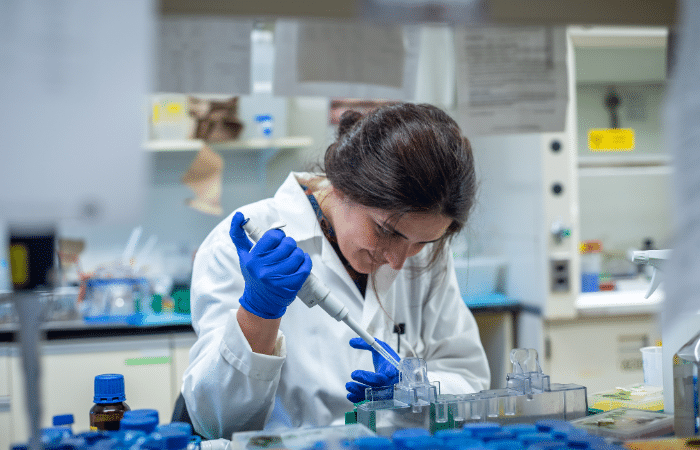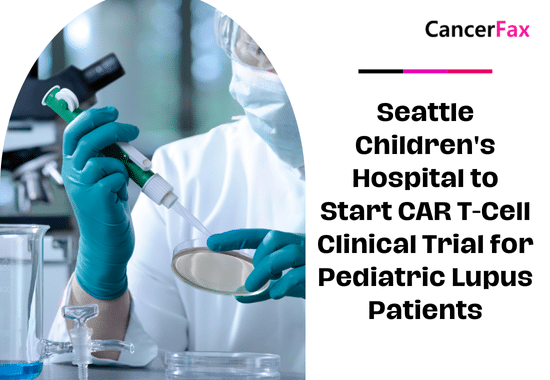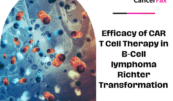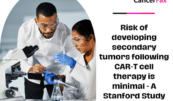Seattle Children’s Hospital to Start CAR T-Cell Clinical Trial for Pediatric Lupus Patients
June 2024: Seattle Children’s Hospital will initiate the inaugural clinical trial in the United States this summer to evaluate the efficacy of an autologous CAR T-cell treatment against a prevalent kind of lupus in pediatric patients.
There is an increasing interest in evaluating CAR T-cell treatments for systemic lupus erythematosus (SLE), a long-term autoimmune condition. Clinical trials for CAR T therapy targeting patients with SLE are now being conducted at Bristol Myers Squibb, Cabaletta Bio, Cartesian Therapeutics, ImmPact Bio, and Novartis Pharmaceuticals. However, it is important to note that these trials are specifically enrolling adult participants who are 18 years of age or older.
Physicians at Seattle Children’s Hospital are currently exploring the possibility of using a cell therapy strategy to treat children with systemic lupus erythematosus (SLE). They are intensifying their efforts to test a prospective CAR T-cell therapy that has already been studied in the context of cancer treatment.
Shaun Jackson, a pediatric nephrologist and rheumatologist at Seattle Children’s and an associate professor of pediatrics at the University of Washington School of Medicine, expressed the significance of treating the pediatric population. According to a population-based study released in 2021, approximately 10% of individuals with SLE are diagnosed during childhood.
Investigators at Seattle Children’s are currently awaiting approval from an institutional review board in order to commence the clinical research. They anticipate that enrollment will open in July.
The hospital system’s nonprofit therapeutics arm, which specializes in advancing cell and gene therapies for pediatric populations, created the CD19-targeting CAR T-cell therapy on-site. This arm is also leading the clinical trial. Jackson is not employed by Seattle Children’s Therapeutics, however, he will assume the role of primary investigator for the Phase I research of the experimental cell therapy.
Presently, the conventional treatment for systemic lupus erythematosus (SLE) entails administering a combination of medications with the aim of maintaining disease management. The specific assortment of medications prescribed is contingent upon the individual patient’s symptoms, which might exhibit significant variation. Patients with lupus may be prescribed Plaquenil (hydroxychloroquine), corticosteroids, or immunosuppressants, along with additional drugs.
However, Jackson stated that even with the implementation of many treatments, there exists a group of individuals who do not show any reaction or only exhibit a partial response. “Despite being prescribed a combination of four or five drugs, they continue to experience persistent inflammation.”

The basic idea behind the experimental CAR T-cell therapy for lupus is based on B lymphocytes. People with systemic lupus erythematosus (SLE) have problems with these immune cells, which are called B lymphocytes. Researchers aim to diminish or eliminate SLE symptoms by specifically targeting and decreasing B lymphocytes. According to Jackson, clinical research conducted in Germany found that eight patients with systemic lupus erythematosus (SLE) experienced long-lasting remission for a period exceeding two years following treatment with an autologous CAR T-cell therapy.
Jackson’s ultimate goal is for people with SLE to be able to achieve a state of sustained remission and gradually become less dependent on immunosuppressant drugs after CAR T-cell therapy.
In the Phase I experiment called REACT-01, conducted at a single site, researchers at Seattle Children’s Hospital want to recruit 12 patients with refractory systemic lupus erythematosus (SLE). Refractory SLE is a severe form of the illness that affects important organ systems and does not respond to current treatments.
Prospective participants, as well as their caregivers, will have a consultation with a nephrologist or rheumatologist to discuss the study protocol. Additionally, they will meet with a member of the oncology team to gain further knowledge on the cell therapy.
The researchers will primarily assess the safety and feasibility of the cell therapy and closely monitor outcomes such as cytokine release syndrome and neurotoxicity. Furthermore, they will evaluate whether patients get remission and the duration of that remission.
Seattle Children’s has been actively involved in the development, production, and clinical testing of cellular immunotherapies for juvenile tumors since 2012. This CAR T-cell therapy is not the initial treatment of its kind to be progressed at Seattle Children’s. In 2020, the hospital system established Seattle Children’s Therapeutics. It currently employs over 100 individuals, including personnel dedicated to research and development, clinical trial administration, and regulatory affairs.
The therapeutics group has obtained clearance from the US Food and Drug Administration for its 17th investigational new drug (IND) application with CAR T-cell therapy for SLE. However, this is the team’s first therapy candidate created for a condition other than cancer.
According to Colleen Annesley, the medical director of Seattle Children’s Therapeutics and an assistant professor in the pediatric hematology/oncology division at UW’s medical school, the process of developing a novel therapy can span several years. Still, researchers were able to speed up the development of CAR T-cell therapy and the creation of a study protocol for SLE by building on years of work that had already been done in the fields of leukemia and lymphoma.
They successfully utilized the cell therapy product, SCRI-CAR19, which had previously undergone testing for various types of malignancies, for the treatment of SLE. Seattle Children’s Therapeutics is currently preparing a manuscript containing the findings of clinical studies on SCRI-CAR19 in leukemia and lymphoma. They intend to submit this manuscript soon. Additionally, they have plans to further evaluate advanced versions of SCRI-CAR19 in the context of cancer treatment.
Because the researchers had already looked at a CAR T-cell product in a different setting and because Seattle Children’s is very good at manufacturing, following rules, and running clinical trials, it only took them less than a year to start talking about a CAR T-cell therapy for SLE, make the study protocols, and get FDA approval for an IND application in March.
“We didn’t have to begin the project from the very beginning,” Annesley stated.
Seattle Children’s Therapeutics mostly conducts Phase I trials, which include testing new treatments on humans for the first time. The organization has carried out two Phase I/II trials that have progressed to Phase II, evaluating cell treatments in patients with relapsed and refractory B-cell acute lymphoblastic leukemia and lymphoma. However, conducting trials in later stages requires substantial resources to effectively handle larger patient groups across various sites.
Annesley stated that the therapeutics division is willing to collaborate with biotech businesses in order to progress its early-stage programs and create novel cell and gene therapies. Juno Therapeutics, which is now a subsidiary of Bristol Myers Squibb, obtained a license from Seattle Children’s to use a CAR T-cell therapy for specific individuals diagnosed with large B-cell lymphoma. The FDA granted approval for the therapy known as Breyanzi (lisocabtagene maraleucel) in 2021, but restricted its use to adult patients. Over the years, Bristol Myers Squibb has further developed and extended the use of Breyanzi to treat additional types of blood cancers.

According to Jackson, if the Phase I REACT-01 experiment is successful and the investigators decide it is appropriate to move forward with a Phase II trial, they may look for an industry collaborator to support further advancement. The findings from the Phase I study might also be a starting point for the development of CAR T-cell therapy for additional autoimmune diseases brought on by autoreactive B cells.
“There exists a diverse array of autoimmune diseases in which CAR T cells could potentially be efficacious,” stated Jackson. “From our perspective, the most thrilling aspect is to actively push the boundaries of our understanding and explore the potential advantages that these therapies could offer.”
Please send your details over here, if you wish to enroll someone in this study.
Dr. Nishant Mittal is a highly accomplished researcher with over 13 years of experience in the fields of cardiovascular biology and cancer research. His career is marked by significant contributions to stem cell biology, developmental biology, and innovative research techniques.
Research Highlights
Dr. Mittal's research has focused on several key areas:
1) Cardiovascular Development and Regeneration: He studied coronary vessel development and regeneration using zebrafish models1.
2) Cancer Biology: At Dartmouth College, he developed zebrafish models for studying tumor heterogeneity and clonal evolution in pancreatic cancer.
3) Developmental Biology: His doctoral work at Keio University involved identifying and characterizing medaka fish mutants with cardiovascular defects.
4) Stem Cell Research: He investigated the effects of folic acid on mouse embryonic stem cells and worked on cryopreservation techniques for hematopoietic stem cells.
Publications and Presentations
Dr. Mittal has authored several peer-reviewed publications in reputable journals such as Scientific Reports, Cardiovascular Research, and Disease Models & Mechanisms1. He has also presented his research at numerous international conferences, including the Stanford-Weill Cornell Cardiovascular Research Symposium and the Weinstein Cardiovascular Development Conference.
In summary, Dr. Nishant Mittal is a dedicated and accomplished researcher with a strong track record in cardiovascular and cancer biology, demonstrating expertise in various model systems and a commitment to advancing scientific knowledge through innovative research approaches.
- Comments Closed
- June 17th, 2024






Autoimmune disease treatment, CAR-T for autoimmune disorders, CAR-T for pediatric lupus, CD19 CAR-T for SLE, Innovative lupus treatment 2024, Lupus CAR-T therapy, Pediatric lupus breakthrough, Seattle Children’s clinical trial
CancerFax is the most trusted online platform dedicated to connecting individuals facing advanced-stage cancer with groundbreaking cell therapies.
Send your medical reports and get a free analysis.
🌟 Join us in the fight against cancer! 🌟
Привет,
CancerFax — это самая надежная онлайн-платформа, призванная предоставить людям, столкнувшимся с раком на поздних стадиях, доступ к революционным клеточным методам лечения.
Отправьте свои медицинские заключения и получите бесплатный анализ.
🌟 Присоединяйтесь к нам в борьбе с раком! 🌟